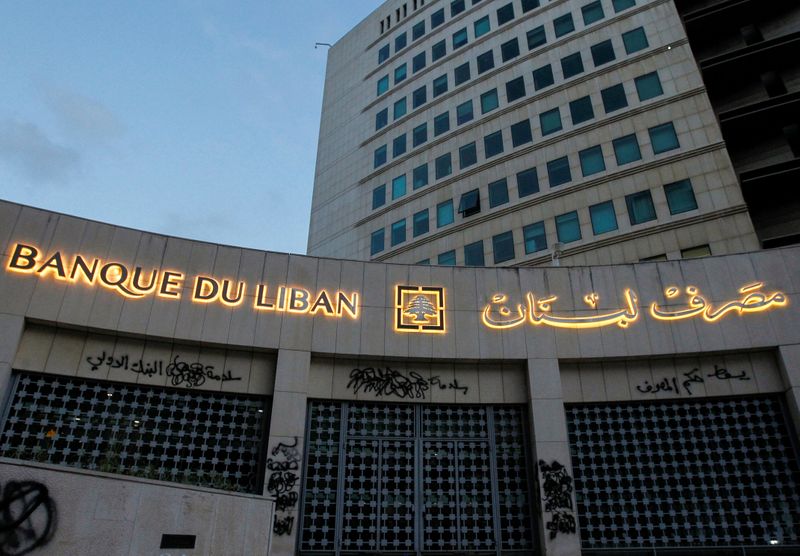By Tom Perry
BEIRUT (Reuters) - Lebanese banks are working on a national financial rescue plan that would preserve some of their capital rather than writing it all off as outlined in a government programme, the banking association head said on Tuesday.
The Association of Banks in Lebanon (ABL) has criticised the plan approved by the government last week, saying it would "further destroy confidence" in the heavily-indebted country which is facing economic and financial meltdown.
The government plan, which will form the basis of talks on financial aid with International Monetary Fund, aims to steer Lebanon out of a crisis seen as the biggest threat to stability since the 1975-90 civil war.
"The government plan has completely neglected the banking sector," ABL Chairman Salim Sfeir told Reuters, saying banks wanted to discuss their proposals with government experts to "recreate confidence in order to create the new Lebanon."
The bankers' proposals would be released in a week to 10 days, he said.
Lebanon's banks have been a major lender to government for decades, helping to finance a wasteful and corrupt state which in March defaulted on its sovereign debt for the first time.
ABL said last week the government plan had unfairly shifted blame for the crisis onto banks, adopting a punitive approach to the sector and, by extension, its depositors.
The crisis has resulted in depositors largely being shut out of their savings and the local currency shedding more than half its value since October as dollars have become ever more scarce.
Under the government plan, the capital of banks in Lebanon would be written off with a full bail-in of shareholders.
The combined capital of Lebanon's banks is 31 trillion Lebanese pounds, equivalent to $20.6 billion at the official exchange rate of 1,507.5 pounds to the dollar or $8.9 billion at a weaker rate of 3,500 pounds used in the government's plan.
The plan calls for the recapitalisation of the banking sector, a task bankers say would prove difficult given Lebanon's financial turmoil. Banks that cannot raise fresh capital could be forced out of business, further hurting the economy.
ABL's Sfeir said the government proposal on banks' capital was "very negative" and said there were other ways to approach the issue. He declined to give details of the banks' proposal.
"We are talking about putting together with the government a new plan and by all means this new plan has to preserve the minimum equity (at banks) needed to restart a new cycle for the economy," he said.
"The world wide economy is in such bad shape that it is very difficult to bring new shareholders to invest in the Lebanese banking system of today or tomorrow, and we have to rely on what we have," Sfeir said.
The government plan forecasts Lebanon's economy would shrink by 13.8% in 2020 and 4.4% in 2021, before a gradual recovery that would deliver economic growth of 3.1% in 2024.
"Nothing sustainable could be done without the banking sector," Sfeir said, adding that the bankers' plan was "more realistic" than the government's ideas which he said relied on international financial aid that had not yet been forthcoming.
